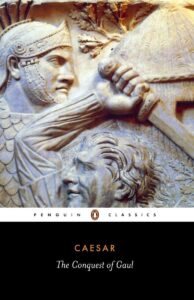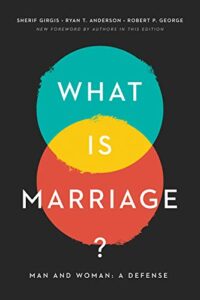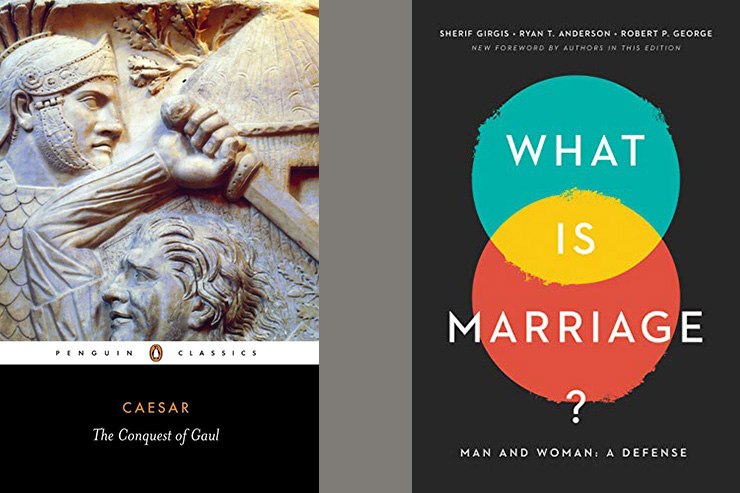
Julius Caesar was a border-control hawk. His Commentaries on the Gallic War opens with an account of how and why the Helvetian tribe sought to cross through Roman-controlled territory in Gaul—and how he and his legions stopped them in their tracks. Needless to say, this politician’s account of his military career is self-aggrandizing and biased, but even so, it is more honest than the propaganda dominating the Anglosphere today.
When Caesar clashes with the Suebian chieftain Ariovistus, who was behind the German great replacement of Gaul’s native Celts, we get a surprisingly fair rendering of Ariovistus’ point of view. Having been invited in as mercenaries by one tribe seeking an upper hand over its enemies, Ariovistus makes a plausible case for why a chunk of Gaul was owed him and why the Romans should stay out of his business. Since “the lands he occupied had been granted by the Gauls themselves,” Ariovistus argued, it was “as improper for [the Romans] to interfere in his domains as it would be for him to raid the Roman Province.”
Right or wrong, Ariovistus is overcome by his Roman nemesis, nor is he by any means the last to fall. The great Gallic king Vercingetorix is likewise accorded respect, not only as a brave, skilled adversary but as a man who volunteers to give up his life to the Romans once it has become clear that further opposition would only bring down ruin upon his own people.
From Helvetians and Germans to Britons and Nervii, Caesar provides fascinating ethnographic details about the peoples he encounters—allies and enemies alike. We can only wish that secular Western elites would exhibit as much intellectual curiosity and magnanimity about the ways, mentalities, and faiths of Muslims, Russian Orthodox, and American “deplorables” as Caesar does regarding Gallic and Germanic tribesmen. He appreciates the Druids’ insistence upon maintaining their sacred oral tradition, as “reliance upon documents tends to relax diligence in memorization.” He likewise acknowledges the hardiness and temperance of the Germans, who “are inured to toil and deprivation from infancy” and “believe that continence contributes to height and strength and energy.”
Not long ago, when education meant the study of Greek and Latin, second-year high school students cut their teeth on Caesar’s text. Far easier to follow than the complex poetry of Virgil or the dense speeches of Cicero, De Bello Gallico is anthropology, military history, and high drama all in one.
—Jerry Salyer

Justice Clarence Thomas recently acknowledged, to the left’s horror, that in the wake of Dobbs, we might expect more reconsiderations by the Court of recent policy determined unilaterally by previous Court decisions on important cultural matters. The 2015 Obergefell decision, which purported to find federal protection for homosexual marriage in the Due Process and Equal Protection clauses of the Constitution, is among those that may be rethought by the current Court.
The 2012 book What is Marriage? Man and Woman: A Defense is a superb primer from which even those well-versed on this matter can learn much. “Love is love,” reads the yard sign of your progressive neighbor, but the authors argue that only conjugal marriage between a man and a woman
committed entirely and exclusively to each other can perfectly unite a couple, bodily and spiritually.
This does not mean that other kinds of relationships can never produce human goods for those involved. But marriage is not a catch-all category for all imaginable forms of companionship. Rather, it is a social institution inseparably linked in principle—if not in every empirical example—to the procreation, nurturing, and socialization of children. Voluminous research shows that children raised by their biological parents are happier and more successful than those raised otherwise. Sound societies must encourage and defend conjugal marriage because it is superior to other forms of companionship when it comes to securing familial foundations.
Significant damage can be done when we set about redefining basic human institutions in ways incompatible with the functions they serve. The revisionism of Obergefell dumbs down marriage to mere friendship, which inevitably weakens an institution charged with a crucial social task.
Much of this damage was intentional. The authors give examples of advocates of homosexual marriage who implicitly or openly admitted that weakening marriage was one of their goals. Andrew Sullivan, Dan Savage, and others suggested that the lower interest in fidelity among homosexual men could only benefit traditional heterosexual couples who were insufficiently enlightened to understand what a wonderful thing it is to cheat on your spouse. American marriage rates, which had begun to climb since 2009 after a long decline, began plummeting again after Obergefell was passed in 2015.
Let us hope the Court does indeed revisit Obergefell after having thoroughly studied the arguments presented in this formidable book.
—Alexander Riley

Leave a Reply